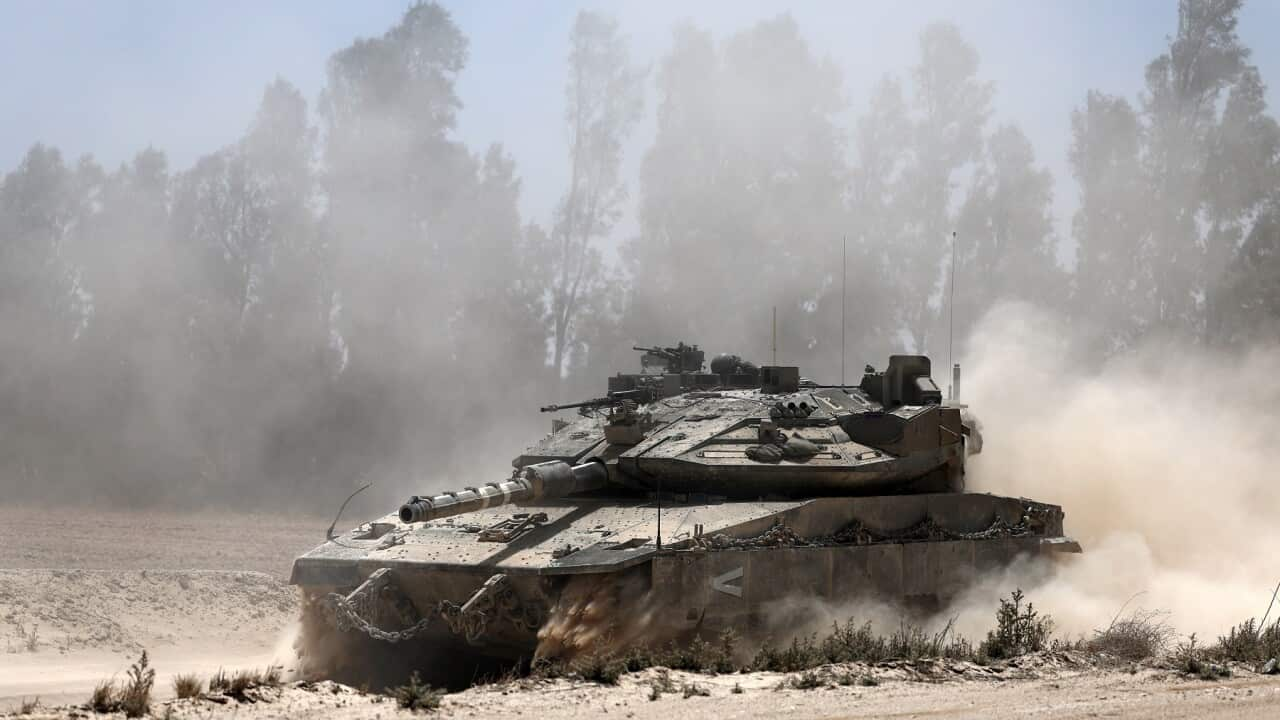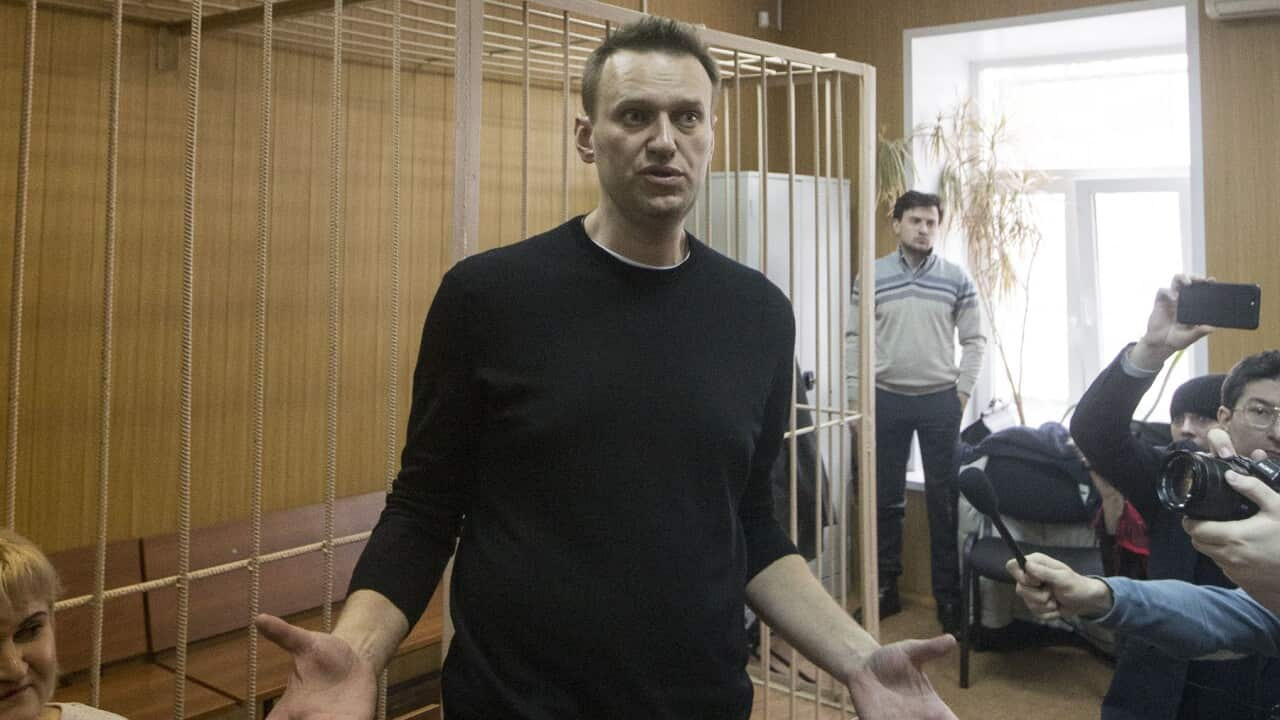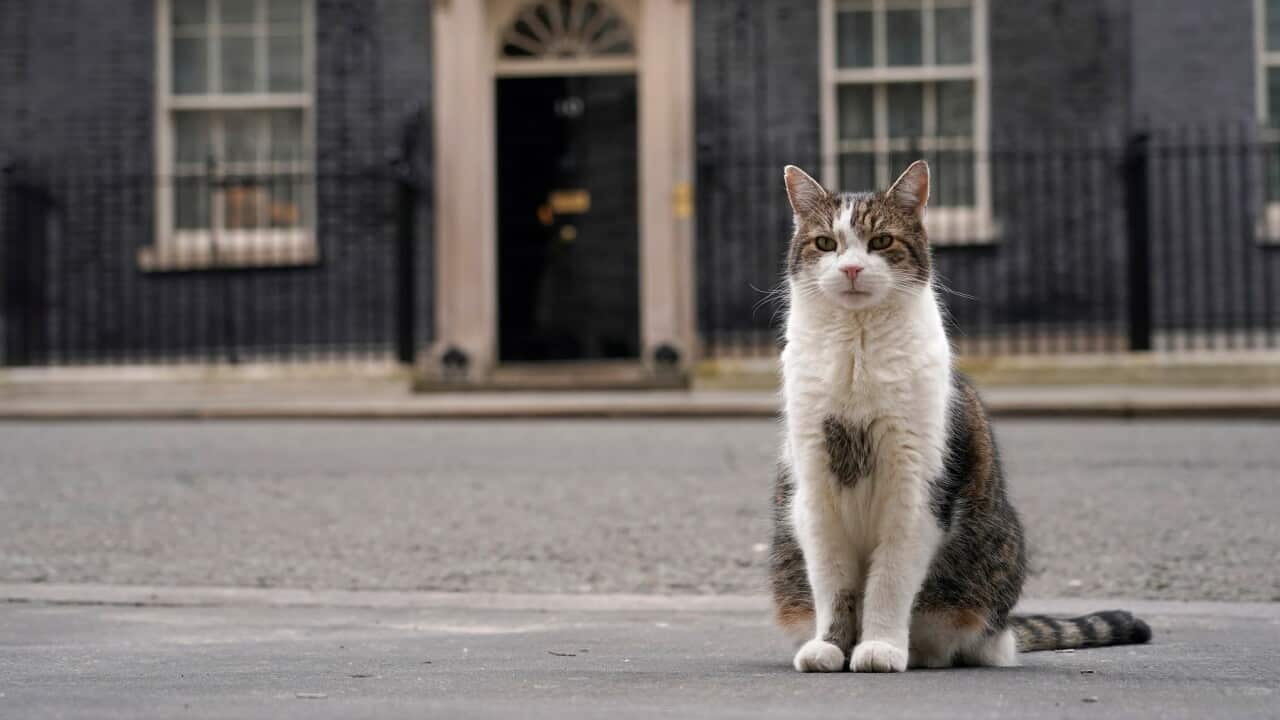Listen to Australian and world news, and follow trending topics with SBS News Podcasts.
TRANSCRIPT
These sounds are of aid trucks entering Gaza after an eleven week blockade.
UN spokesman Stephane Dujarric says there are limited deliveries arriving after Israel agreed to a partial lifting of their ban.
"Our colleagues from the Office of the Coordination of Humanitarian Affairs tell us that today we are sending in flour, medicine, nutrition supplies and other basic items through the Israeli fence into the Palestinian side of the Kerem Shalom crossing. Yesterday, we managed to get baby formula and other nutrition supplies."
Around 100 aid lorries have so far been permitted to enter Gaza, with dozens more trucks waiting for the green light in northern Egypt.
But the UN says aid workers have been unable to bring the items to distribution points where it's most needed, because the Israeli military forced them to reload the supplies onto separate trucks, and workers ran out of time.
And United Nations Childrens Fund spokesperson Tess Ingram says not enough is coming anyway.
She says at least 500 trucks of aid and commercial goods are needed on a daily basis.
“Almost all the essential items that children need are missing at the moment because stocks that were replenished during the ceasefire have run down. Almost all essential items have run out. And the trucks that have been announced to enter this week are a drop in the ocean compared to the need. So it is essential that aid is scaled up."
The aid blockade was introduced because Israel accused Hamas of diverting the aid for its own use, a charge the militant group has denied.
The UN and aid organisations say the blockade has worsened what they say is a rapidly deepening humanitarian crisis.
The UN says it's worried that 14,000 babies are at risk of death from starvation within the next 48 to 72 hours.
UK surgeon Dr Tom Potokar with the International Red Cross has echoed those concerns.
"What can you say? I mean it's horrific. Gaza has become a slaughterhouse... There's so little stuff getting in. There's no food getting in so people are starving. There's very little medical supplies coming in."
Despite such criticism, Chief of Israel's General Staff Lieutenant General Eyal Zamir says the IDF remains determined to intensify its operations against Hamas, 20 months after the group's deadly raid on October 7.
HEBREW THEN ENGLISH VO: "I, together with all IDF soldiers, will continue to act tirelessly until the release of all our hostages. We will seize every possible opportunity. Hamas must understand — there is a price for its actions, and the only way to secure the release of the hostages is to release them. If an agreement is reached, the IDF will adjust its operations accordingly."
Israeli Prime Minister Benjamin Netanyahu also says Israel has no intention of stopping until its goal to defeat Hamas is achieved.
He says strict controls on the distribution of aid remains part of that plan.
HEBREW THEN ENGLISH VO: "Eventually reaching a situation where we have an area that is entirely controlled by the IDF and the entire civilian population of Gaza can get there and receive the aid and Hamas receives nothing. This is part of defeating Hamas... This is the war and victory plan."
Ceasefire negotiations have been quietly proceeding in Qatar while these operations continue.
Qatar Prime Minister Mohammed bin Abdulrahman Al Thani say mediators have been unable to broker a deal.
"There is a fundamental gap between the two parties, which is: one party is looking for a partial deal that might or have the possibility to lead to a comprehensive deal and the other party is looking just for one-off deal, and to end the war and to get all the hostages out."
In the meantime, international pressure to resolve the crisis keeps coming.
Dutch Foreign Minister Casper Veldkamp is among a group of European leaders who say that their patience for Israel's tactics is wearing thin because of the mounting famine concerns in the enclave.
"I know Mrs. von der Leyen is a friend of Israel, and I consider myself a friend of Israel too. I believe that also Mrs. von de Leyen sees it as very important that Europe gives a clear signal to Israel now about the concern that we're having in Europe, also in our societies and politics, about the humanitarian situation in the Gaza Strip and the intensified Israeli war effort."
Sweden is of a similar view.
Its top diplomat says the country is working within the EU to push for sanctions against certain Israeli ministers over Israel's treatment of civilian Palestinians in Gaza.
European Union foreign affairs chief Kaja Kallas says a strong majority of the 27 member states at a foreign ministers' meeting have backed a review of its cooperation deal with Israel.
"Pressure is necessary to change the situation... So we will launch this exercise. And in the meantime, it is up to Israel to unblock the humanitarian aid."
In the UK, Foreign Secretary David Lammy has announced sanctions and the suspension of free trade talks with Israel - and he has summoned Israeli's ambassador to the UK for a dressing down.
"The two state solution remains the ideal framework - indeed, the only framework for a just and lasting peace. But as the House knows, its very viability is in peril, endangered not only by the war in Gaza, but by the spread of illegal Israeli settlements and outposts across the occupied West Bank, with the explicit support of this Israeli government. There are now weekly meetings to improve new settlement construction, settlement approval has accelerated while settler violence has soared."
Israel’s Foreign Ministry spokesperson Oren Marmorstein has called the sanctions “unjustified and regrettable” and said the free trade agreement negotiations were not being advanced by the UK anyway.













